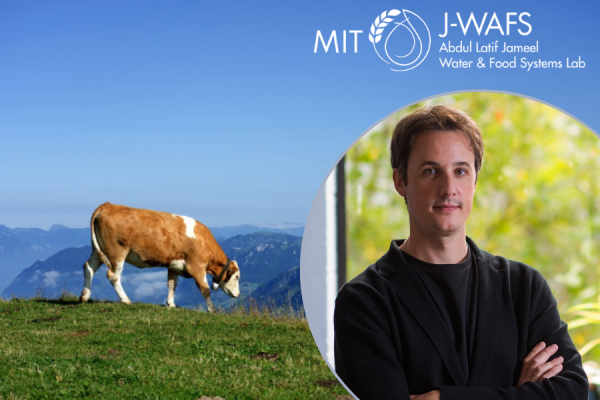Our Research The role of livestock in climate change: Holistic greenhouse gas assessments and implications for human diets

Photo by Wolfgang Hasselmann on Unsplash
Principal Investigator
César Terrer
- Assistant professor
- Department of Civil and Environmental Engineering
César Terrer is a tenure-track assistant professor in the Department of Civil and Environmental Engineering at MIT. An expert in climate and carbon-cycle science, his research focuses on understanding and mitigating the impacts of climate change on terrestrial ecosystems. Professor Terrer has authored numerous high-impact publications, including articles in Nature and Science. He has also served as an advisor for large corporate entities on natural climate solutions. His work is recognized for its significant contributions to both scientific understanding and practical climate solutions.
Challenge:
How can we effectively quantify and mitigate the indirect greenhouse gas emissions from livestock grazing to balance economic development with environmental sustainability?
Research Strategy
- Develop a comprehensive global database to capture detailed greenhouse gas (GHG) emissions from livestock grazing, using data from existing studies and newly conducted research
- Utilize advanced predictive modeling to forecast future GHG emissions under various livestock management and climate scenarios, identifying effective mitigation strategies
- Evaluate dietary and grazing management strategies that reduce emissions and promote sustainable agricultural practices, particularly in low- and middle-income countries (LMICs)
Project description
This project focuses on reducing greenhouse gas (GHG) emissions from livestock grazing, a common practice in low- and middle-income countries (LMICs) that significantly impacts climate change. Livestock grazing affects the environment by altering land use and affecting soil and vegetation, which in turn influences the atmosphere's composition.
The main goal of the research is to develop a global database that collects detailed information on GHG emissions from livestock grazing. This database will provide essential insights into how different grazing practices influence emissions, helping scientists, policymakers, and farmers understand and manage their environmental impact more effectively.
In addition to building the database, the team plans to use the collected data to predict future emission trends under various management scenarios and environmental conditions. This will help identify the most effective strategies for reducing emissions. Furthermore, the researchers will explore how changes in grazing management and human diets could further decrease emissions and enhance the soil's ability to capture and store carbon, turning grazing lands into beneficial carbon sinks.
By providing these tools and insights, the project aims to help LMICs implement sustainable practices that balance agricultural productivity with environmental conservation, contributing to global efforts to combat climate change.
News
Additional Details
Impact Areas
- Food
- Climate & Sustainability
Research Themes
- Transforming Food Systems
- Modeling & Data Analytics
- Equity & Access
Year Funded
- 2024
Grant Type
- Other
Status
- Ongoing

